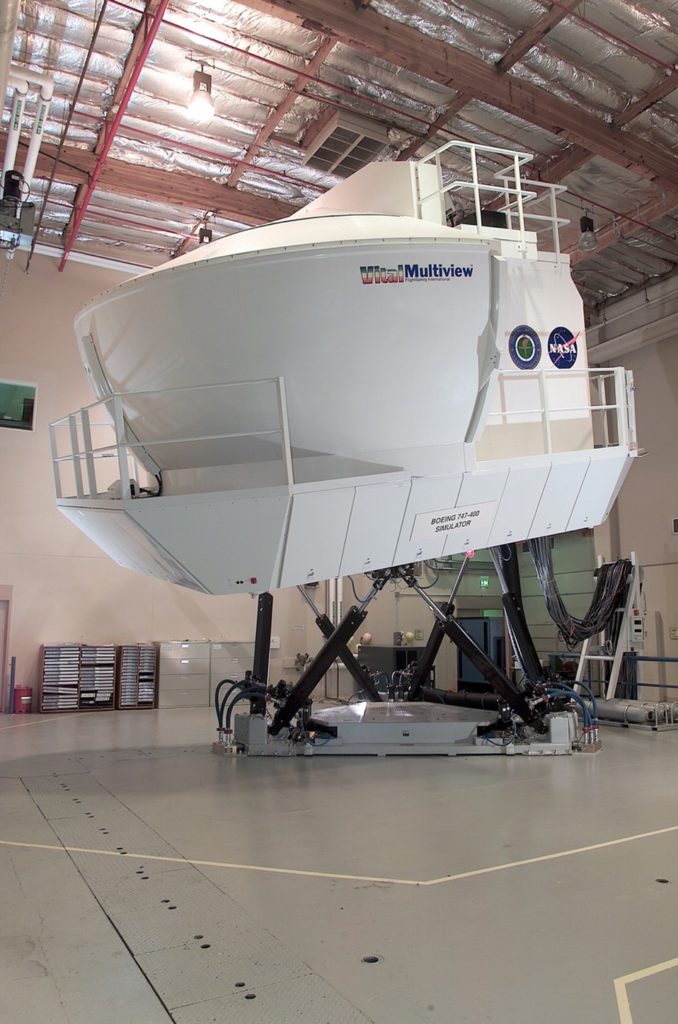MFRA technicians and engineers at NASA Ames Research Center provided key contributions to the Virgin Orbit flight on January 17, 2021, which launched several small satellites into orbit from a Boeing 747. During that flight in January 2021, Virgin Orbit successfully released LauncherOne, a 57,000-pound rocket, from below the left-wing of their Boeing 747, Galaxy Girl. LauncherOne, the first liquid-fueled, air-launched rocket to achieve orbit, successfully delivered 10 small satellites into orbit for NASA’s Launch Service Program.
For the past decade, Ames organizations have supported the development of the Virgin Orbit small satellite launcher. MFRA and the Aerospace Simulation Research and Development Branch at NASA Ames has been integral to providing procedure development and pilot training using the SimLabs 747 simulator. MFRA engineers modified the simulator’s aero model to replicate the load and drag forces of LauncherOne’s location under the left-wing, providing Virgin Orbit pilots with an accurate representation of the aircraft’s handling qualities as they developed and rehearsed flight profiles for the air-launch platform. During simulation sessions, the pilots perform more than 20 runs per day safely rehearsing pitch-ups, hold timing, captured landings with rocket, and various simulated aircraft and rocket contingency operations.
MFRA is both proud and excited to have had the opportunity to contribute to Virgin Orbit’s remarkable milestone achievement, opening access to space to a larger base of users than ever before.
For more information, see: https://www.nasa.gov/feature/ames-aeronautics-contributions-to-the-virgin-orbit-flight-into-space

